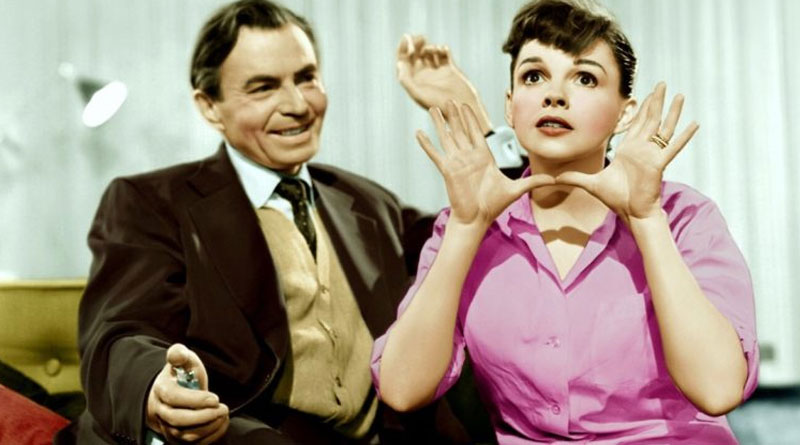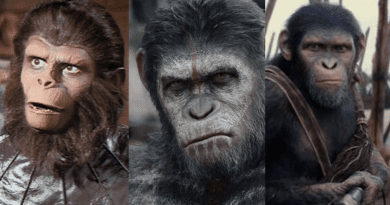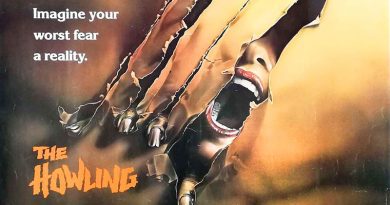Retrospective: A Star Is Born (1937, 1954 & 1976)
If you are a true movie fan, you must have seen or at least heard about A Star is Born one way or another. The classic showbiz drama was first made in 1937 and later remade twice in 1954 and again, in 1976. All three movies featured different leads (Janet Gaynor, Fredric March, Judy Garland, James Mason, Barbra Streisand and Kris Kristofferson) and directors (William A. Wellman, George Cukor and Frank Pierson). But each of these movies retained the basic premise more or less the same formula: a has-been, alcoholic showbiz veteran discovered an aspiring starlet, fall in love with her and help her grow into superstardom.
Now, with the fourth remake set to arrive in our local cinemas this October 18th, let’s take a look back at the three previous movies below.
A Star Is Born (1937)

This is the movie that started it all. In this original 1937 version directed by William A. Wellman, Janet Gaynor plays Esther Blodgett, a young woman from North Dakota who’s off to Hollywood to realise her dream of becoming an actress.
But her initial journey isn’t particularly smooth-sailing until she met Danny McGuire (Andy Devine), an assistant director who gives her head start through a waitressing gig at a lavish Hollywood party. From there, she catches the attention of Norman Maine (Fredric March), a once-popular actor-turned-alcoholic whose stardom had seen better days and falls for her at first sight. He subsequently helped her gets a screen test by introducing her to his best-friend producer, Oliver Niles (Adolphe Menjou). Impressed with her acting, Oliver offers her a contract and even gives her a new stage name: Vicki Lester.
As both of them got married, Vicki becomes increasingly popular while Norman’s acting career took a serious nosedive — a result that leads him to more drinking issue and self-destructive behaviour.
By now, William A. Wellman’s cruel depiction at the dark side of Hollywood is actually nothing new. But it’s hard to deny the fundamental elements — fame, alcoholism, personal demon, career downfall — still resonates even by today’s standard. Both Janet Gaynor and Fredric March deliver excellent performances, even though there’s a nagging feeling that it was March who mostly steals the show as the sympathetic Norman.
Don’t get me wrong, I do enjoy Gaynor’s performance but her character is somewhat underwritten. Over the course of the movie, it looks as if Wellman — who also co-wrote the screenplay alongside Robert Carson, Dorothy Parker and Alan Campbell — chose to take a narrative shortcut by streamlining Esther’s progress from a nobody to a rising Hollywood star. We only managed to witness a brief evidence on Esther’s acting talent, particularly during a scene where she tries to imitate the likes of Mae West and Greta Garbo while serving appetisers for some of the Hollywood’s big-time guests. And yet, it was barely enough to justify her so-called rags-to-riches story as something that worth labelling as inspirational.
It doesn’t help either when Wellman tends to push the comedy elements a bit too far in this otherwise cautionary tale of Hollywood showbiz. While I admit some of them are quite amusing, it would have been better if the movie toned them down for a few notches. Which is why I found the original 1937 version of A Star Is Born is somewhat overrated, even though it does contain a fair share of worthwhile moments.
A Star Is Born (1954)

George Cukor’s 1954 remake is thankfully a vast improvement over the uneven 1937 original, with better lead performances played by Judy Garland and James Mason. (Here’s an interesting trivia: this is not the first time Cukor tackled such a subject, having previously made the similar-themed movie back in 1932 in What Price Hollywood?)
The story, in the meantime, is more or less the same with one notable exception: Instead of portraying Garland as an aspiring movie star like Gaynor in the original 1937 version, she plays a singer. The good news is, Cukor takes considerable amounts of time to tell her rags-to-riches story — as evidently seen in the restored 176-minute cut — in a more poignant and heartfelt manner. Even the comedy elements are well-balanced with the dramatic tone of this movie.
Mason pulls off a solid performance as Norman but this 1954 remake is best remembered for Judy Garland’s comeback, which earned her a much-deserved Oscar nomination in the Best Actress category (even though she lost to Grace Kelly in The Country Girl). She definitely gives her all as Vicki Lester — a role that perfectly mirrored her own troubled life. As a singer herself, she belts out some of the most memorable songs ever heard in her acting career. This includes a single-take sequence where she croons “The Man Who Got Away” at a club and another elaborate moment where she reenacts her scene at the studio to Norman back home, using the furniture and other household items as props as she dances around the living room while singing “Someone at Last”.
A Star Is Born (1976)

Unlike the 1937 and 1954 Hollywood-themed versions, Frank Pierson’s 1976 remake of A Star Is Born tweaks the formula by setting the movie in the world of contemporary rock music. Frankly, the movie is largely protracted with its unnecessary 140-minute length. Certain scenes, notably on its sometimes cringe-worthy romantic moments between Barbra Streisand’s Esther Hoffman and Kris Kristofferson’s John Norman Howard, could have used some serious trimming. Pierson did try to make his movie as culturally relevant as possible to keep up with the time (in this case, the 1970s era). But his overall execution tends to feel either bland or overly melodramatic. Not even the frequent use of profanities help the matters much.
Both Streisand and Kristofferson’s acting performances are sadly mediocre. But there are better off as singers here, with Streisand stealing the show here. The final scene is particularly one of the finest moments in her career — a final scene shot in an unbroken take where the camera remains still on her face as she sings “With One More Look at You” and “Watch Closely Now”. The movie is also best remembered for its Oscar-winning heartfelt theme song “Evergreen”.
A Star Is Born (1937)

A Star Is Born (1954)

A Star Is Born (1976)





